Introduction
In the quest for luscious locks, many individuals turn to diet and lifestyle changes to promote hair growth and improve hair health. One popular trend that has gained attention is intermittent fasting.
Intermittent fasting involves restricting food consumption for specific periods, and many praise it for its potential benefits in weight loss and overall health.
However, the question remains: does intermittent fasting truly stimulate hair growth? In this article, we will explore the relationship between intermittent fasting and hair health, separating fact from fiction.
Busy? Save this pin for later.
Understanding Hair Growth
Before diving into the connection between intermittent fasting and hair growth, it is essential to understand the basics of the hair growth cycle. Hair growth is a complex process influenced by various factors.
The hair growth cycle consists of four phases: anagen (growth phase), catagen (transition phase), telogen (resting phase), and exogen (shedding phase). Each hair follicle operates independently, meaning that each strand of hair goes through these stages at different times.
Several factors influence hair growth, including genetics, age, hormones, and nutrient availability. Maintaining a healthy hair growth rate is crucial for achieving long, thick, and vibrant hair.
You Might Also Like : Hair Care Tips For Volume
Connection between Intermittent Fasting and Hair Growth
Nutrition plays a vital role in hair health, and any dietary changes can potentially impact the hair growth cycle.
It is important to note that sudden and drastic changes in calorie intake and nutrition can lead to a condition called telogen effluvium, which is characterized by temporary hair loss.
Therefore, it is not surprising that intermittent fasting, with its intermittent calorie restriction, has been associated with hair loss rather than hair growth.
How does intermittent fasting influence the production of hormones that are important for hair growth?
Intermittent fasting can have significant effects on hormone production in the body, which can impact hair growth. One key hormone affected by intermittent fasting is insulin. When you fast, insulin levels decrease since there is no food intake to stimulate its release.
Lower insulin levels have been associated with reduced inflammation and improved cell function throughout the body. Insulin also interacts with other hormones involved in hair growth, such as androgens.
High levels of androgens like dihydrotestosterone (DHT) can contribute to conditions like pattern baldness by shrinking hair follicles and shortening their growth phase.
Intermittent fasting has been shown to reduce DHT levels in some individuals, potentially slowing down or preventing the progression of pattern baldness. Additionally, intermittent fasting increases the production of human growth hormone (HGH).
HGH plays a crucial role in cell regeneration and repair throughout the body, including the scalp and hair follicles. By increasing HGH levels through intermittent fasting, you may promote healthier hair follicles and potentially enhance hair growth.
Overall, intermittent fasting’s influence on various hormones involved in hair growth suggests it could positively impact the production and balance of these hormones for optimal hair health.
You Might Also Like : Effective Hair Care Tips For Preventing Hair Loss Naturally
Can intermittent fasting stimulate the regeneration of dormant hair follicles?
While more research is needed to directly confirm the effects of intermittent fasting on hair follicle regeneration, some evidence suggests that it may stimulate the activation and rejuvenation of dormant hair follicles.
Intermittent fasting promotes a cellular process called autophagy, which involves the removal of damaged components and recycling of cellular materials.
This process helps eliminate any accumulated toxins or waste products that may hinder hair follicle health. By clearing out these harmful substances, intermittent fasting creates an environment conducive to promoting hair follicle regeneration.
Furthermore, intermittent fasting has been shown to increase the production of human growth hormone (HGH). HGH plays a crucial role in cell regeneration and repair throughout the body, including the scalp and hair follicles.
By increasing HGH levels through intermittent fasting, there is a potential for stimulating dormant hair follicles and promoting their regrowth.
While more research is needed to fully understand the mechanisms behind intermittent fasting’s impact on dormant hair follicles, its effects on autophagy and HGH production suggest it could play a role in stimulating their regeneration.
Are there any specific types of intermittent fasting that are more effective for promoting hair growth?
There is no specific type of intermittent fasting that has been proven to be more effective for promoting hair growth. The key factor in intermittent fasting is creating a period of time where you abstain from food intake, allowing your body to enter a fasted state.
However, some individuals may find certain methods of intermittent fasting more sustainable or easier to adhere to than others.
For example, the 16/8 method (fasting for 16 hours and eating during an 8-hour window) is popular because it can be easily incorporated into daily routines.
The 5:2 method (eating normally for five days and restricting calories on two non-consecutive days) may work well for those who prefer occasional calorie restriction rather than daily time-restricted eating.
Ultimately, choosing a method that fits your lifestyle and allows you to consistently practice intermittent fasting is more important than the specific type of fasting pattern.
Consistency and adherence are key factors in experiencing the potential benefits of intermittent fasting for hair growth.
You Might Also Like : Hair Care Tips For Preventing Hair Damage Naturally
Does intermittent fasting help in reducing the risk of hair loss or thinning?
Intermittent fasting may help reduce the risk of hair loss or thinning through various mechanisms. By promoting a healthier hormonal balance, reducing inflammation, and supporting cellular health, intermittent fasting creates an environment that is less conducive to hair loss.
One way intermittent fasting may reduce the risk of hair loss is by decreasing insulin levels. High insulin levels have been associated with conditions like androgenetic alopecia (pattern baldness) due to their interaction with androgens like DHT.
By lowering insulin levels through intermittent fasting, there may be a reduced risk of excessive hair shedding and miniaturization of hair follicles. Additionally, intermittent fasting has been shown to decrease chronic inflammation in the body.
Chronic inflammation can disrupt the normal hair growth cycle and contribute to conditions like alopecia areata. By reducing inflammation through intermittent fasting, you may create a more favorable environment for healthy hair growth and minimize the risk of hair loss or thinning.
While researchers need to conduct more studies to gain a complete understanding of how intermittent fasting specifically influences different types of hair loss, its potential benefits on hormone balance and inflammation make it a promising approach for reducing the risk of certain forms of hair loss.
Are there any scientific studies or evidence supporting the connection between intermittent fasting and improved hair growth?
Although limited research specifically investigates the connection between intermittent fasting and improved hair growth, some studies indirectly support this relationship.
One study conducted on mice found that periodic fasting promoted stem cell activation and rejuvenation in various tissues throughout the body.
This suggests that intermittent fasting could potentially stimulate dormant stem cells within hair follicles, leading to improved regeneration and hair growth. Additionally, intermittent fasting has been shown to affect hormone levels that play a role in hair growth.
For example, researchers have found that it decreases insulin-like growth factor-1 (IGF-1) levels. Elevated IGF-1 levels have been associated with conditions like pattern baldness, so reducing these levels through intermittent fasting may help prevent excessive hair shedding.
Furthermore, intermittent fasting’s effects on inflammation reduction and cellular health can indirectly contribute to improved hair growth. Chronic inflammation and cellular dysfunction can disrupt the normal hair growth cycle and lead to hair loss or thinning.
By promoting a healthier internal environment through intermittent fasting, you may create conditions that support optimal hair growth.
While researchers need to conduct more studies to establish a direct link between intermittent fasting and improved hair growth in humans, these studies suggest potential benefits that warrant further investigation.
You Might Also Like : Hair Care Tips For Oily Hair
Can intermittent fasting be beneficial for individuals experiencing age-related hair loss?
Intermittent fasting may be beneficial for individuals experiencing age-related hair loss due to its impact on hormone regulation and cellular health. As we age, hormonal changes can contribute to the thinning of hair follicles and reduced hair density.
Intermittent fasting has been shown to decrease insulin-like growth factor-1 (IGF-1) levels, which play a crucial role in regulating cell growth and development throughout the body. Lowering IGF-1 levels through intermittent fasting may help mitigate the effects of aging on the scalp and potentially slow down age-related hair loss
Furthermore, intermittent fasting promotes autophagy, a cellular process involved in removing damaged components and recycling cellular materials.
This process helps maintain optimal cellular health by eliminating accumulated toxins or waste products that can negatively affect various tissues, including the scalp and hair follicles.
By supporting overall cellular health through autophagy, intermittent fasting may provide benefits for individuals experiencing age-related hair loss.
Individual results may vary, and we recommend consulting with a healthcare professional before making any significant changes to your diet or lifestyle, especially if you have pre-existing health conditions.
Benefits of Intermittent Fasting for Hair Growth
While intermittent fasting may not directly stimulate hair growth, it can offer some benefits that indirectly support hair health. Let’s explore these potential benefits:
A. Improved Nutrient Absorption and Distribution
Intermittent fasting allows the body to optimize nutrient absorption and distribution by providing periods of rest for the digestive system. When we eat, our body prioritizes the digestion and absorption of nutrients.
During fasting periods, the body can focus on other essential functions, such as repairing and rejuvenating cells, including those responsible for hair growth. By improving nutrient utilization, intermittent fasting may indirectly support the hair growth cycle.
B. Reduced Inflammation and Oxidative Stress
Inflammation and oxidative stress can negatively impact hair health and growth. Intermittent fasting has been shown to effectively reduce inflammation and oxidative stress in the body.
By reducing these factors, intermittent fasting may create a more favorable environment for hair follicles to thrive and promote healthy hair growth.
C. Enhanced Hormone Balance and Regulation
Hormonal imbalances can cause hair loss and inhibit hair growth. Intermittent fasting has been reported to improve hormone balance and regulation, particularly insulin sensitivity.
Insulin resistance and high insulin levels have been linked to hair loss. By improving insulin sensitivity, intermittent fasting may help maintain hormonal balance, potentially benefiting hair health.
You Might Also Like : Hair Care Tips For Black Hair
Tips for Combining Intermittent Fasting with Hair Growth Goals
If you are considering combining intermittent fasting with your hair growth goals, here are some tips to ensure a balanced approach:
A. Implementing a Balanced Diet while Following Intermittent Fasting
While intermittent fasting restricts the timing of food intake, it is crucial to prioritize a balanced diet during eating periods. Make sure to consume a variety of nutrient-dense foods, including lean proteins, healthy fats, whole grains, fruits, and vegetables.
These foods provide essential vitamins, minerals, and antioxidants that support overall health, including hair health.
B. Incorporating Hair-Supporting Nutrients during Eating Periods
Certain nutrients play a crucial role in hair health. To support hair growth, include foods rich in biotin, vitamin D, iron, zinc, and omega-3 fatty acids in your diet.
These nutrients can be found in foods like eggs, fatty fish, nuts, seeds, leafy greens, and legumes. Consider consulting a healthcare professional or registered dietitian to ensure you are meeting your nutritional needs during intermittent fasting.
C. Hydration and Its Role in Hair Growth
Staying hydrated is important for overall health, including healthy hair. Drinking an adequate amount of water throughout the day helps to keep the scalp and hair follicles hydrated.
Aim to consume at least 8 cups (64 ounces) of water daily. Additionally, consider incorporating hydrating foods such as watermelon, cucumbers, and citrus fruits into your diet.
You Might Also Like : Hair Care Tips For Damaged Hair
Potential Cons and Considerations
While intermittent fasting has its potential benefits for hair health, it is essential to approach it with caution and consider individual factors. Here are some cons and considerations to keep in mind:
A. The Need for a Personalized Approach to Intermittent Fasting
Intermittent fasting is not a one-size-fits-all approach. Different individuals may have varying nutritional needs, health conditions, and lifestyles.
It is crucial to personalize your approach to intermittent fasting and consider factors such as age, gender, activity level, and underlying health conditions. Consulting a healthcare professional or registered dietitian can help you tailor an intermittent fasting plan that aligns with your specific needs and goals.
B. Consulting a Healthcare Professional before Starting any Fasting Plan
Before embarking on any fasting plan, it is essential to consult a healthcare professional, especially if you have any underlying health conditions or concerns.
They can assess your overall health, provide personalized recommendations, and monitor your progress throughout your intermittent fasting journey.
C. Other Factors Influencing Hair Growth to Consider alongside Intermittent Fasting
While intermittent fasting can indirectly support hair health, it is crucial to consider other factors that influence hair growth. These may include stress levels, hormonal imbalances, scalp care, and hair care routines.
Managing stress, practicing scalp care, and using appropriate hair care products are important components of maintaining healthy hair growth alongside intermittent fasting.
Additional Recommendations for Maintaining Healthy Hair Growth
In addition to intermittent fasting, here are some general recommendations to support healthy hair growth:
A. Stress Management Techniques
Stress can contribute to hair loss and disrupt the hair growth cycle. Incorporating stress management techniques such as exercise, meditation, yoga, and adequate sleep can positively impact hair health. Prioritizing self-care and finding healthy ways to manage stress can promote overall well-being, including hair health.
B. Regular Scalp Care and Maintenance
Maintaining a clean and healthy scalp is essential for optimal hair growth. Regularly washing your hair, massaging the scalp to stimulate blood flow, and avoiding excessive heat or chemical treatments can help maintain a healthy scalp environment for hair growth.
C. Appropriate Hair Care Routines and Products
Using the right hair care products and techniques can support healthy hair growth. Choose shampoos and conditioners that are suitable for your hair type and avoid harsh chemicals.
Minimize heat styling and protect your hair from environmental damage by wearing protective styles or using heat protectant products when necessary.
You Might Also Like : 8 Natural Remedies for Repairing Damaged Hair at Home Easily
Conclusion
While intermittent fasting may not directly stimulate hair growth, it can provide certain benefits that indirectly support hair health. By improving nutrient absorption, reducing inflammation and oxidative stress, and enhancing hormone balance, intermittent fasting can create a favorable environment for hair follicles to thrive.
However, it is important to approach intermittent fasting with a balanced and personalized approach, considering individual factors and consulting healthcare professionals when necessary.
By combining intermittent fasting with other healthy lifestyle practices, such as stress management and proper hair care, you can optimize your hair growth journey.
Remember, achieving healthy hair growth is a holistic process that requires attention to various factors, including nutrition, lifestyle, and self-care.
You Might Also Like : 8 Best Homemade Hair Growth and Thickness Remedies



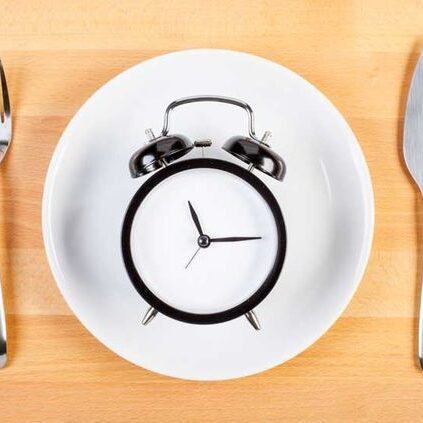
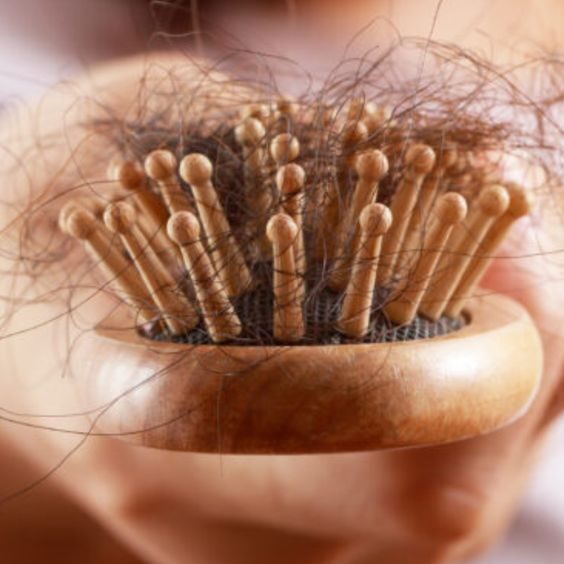
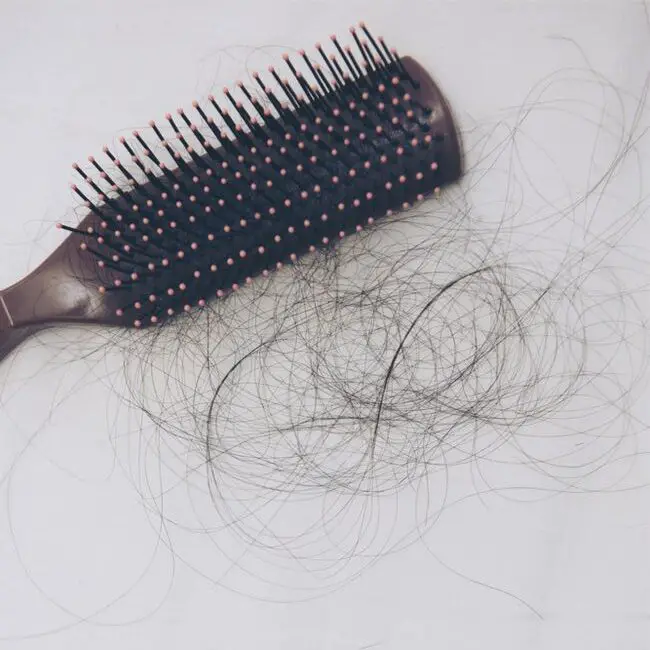
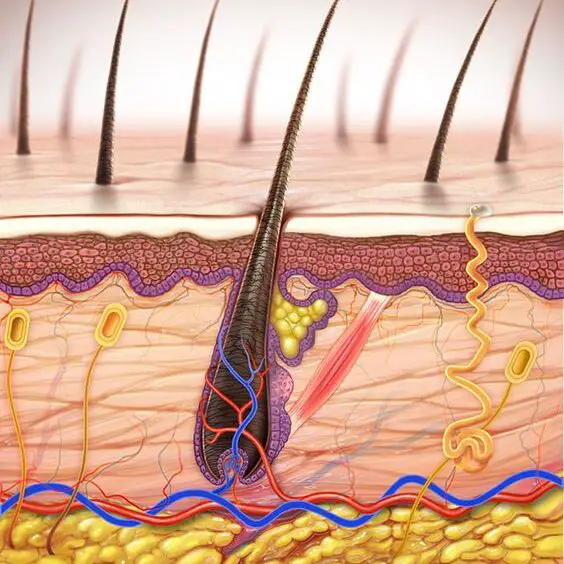


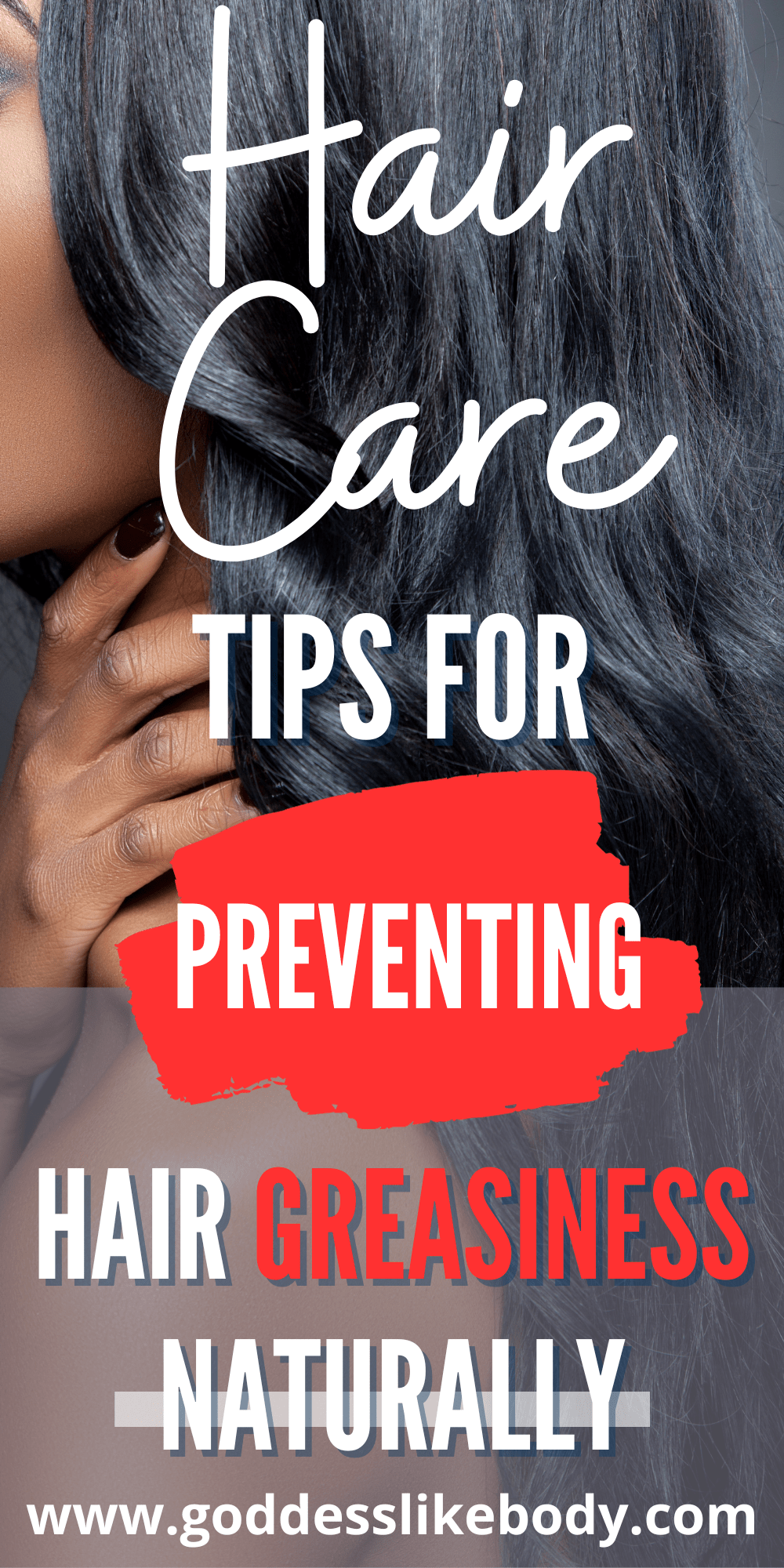
Leave a Reply
You must be logged in to post a comment.